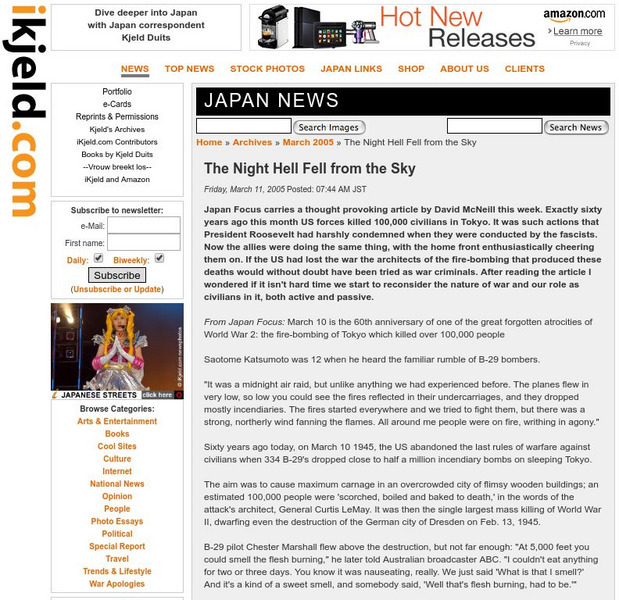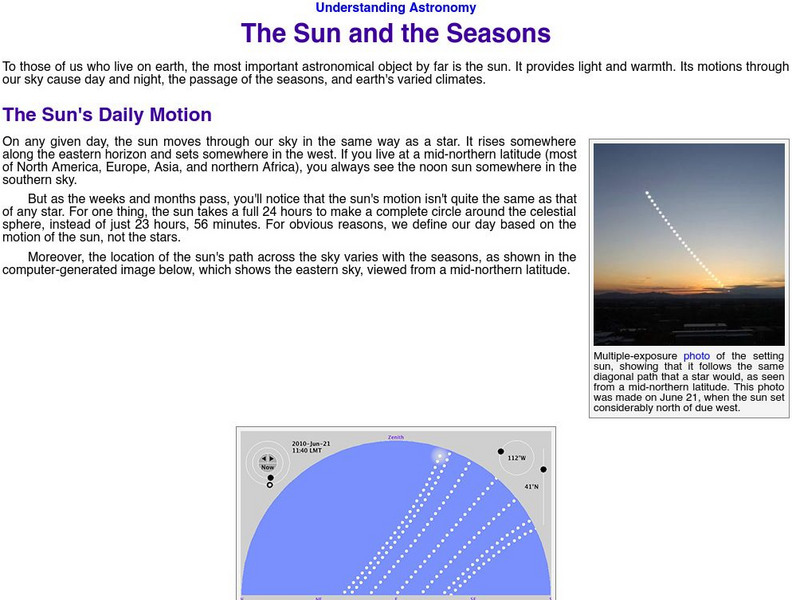NASA
Nasa: Night Sky Network: Pocket Solar System
Individual or classroom activity helps students understand the solar system because they can visualize it. Extension resources are included.
Other
Bscs: Globe at Night Dark Skies
In this self-directed lesson, students investigate what contributes to light pollution using data from locations around the globe. A handout with everything the student needs to complete this lesson is available as a PDF or Google Document.
Other
University of Leicester: Comets, Asteroids & Meteorites
Provides a general overview of comets, asteroids, and meteorites. Content includes ways to identify them in the night sky, as well as detailed information on each type of small body.
PBS
Pbs Learning Media: Phases of the Moon
When we look up at the night sky, why do we see the Moon's appearance changing over time from a full sphere to a crescent to nothing at all? Find the answers in this interactive resource adapted from the National Air and Space Museum.
TED Talks
Ted: Ted Ed: What Is an Aurora?
Why do we see those stunning lights in the northern- and southernmost portions of the night sky? Michael Molina explains every step of the dazzling phenomenon of the Aurora Borealis and Aurora Australis. [4:10]
TED Talks
Ted: Ted Ed: How Plants Tell Time
Morning glories unfurl their petals like clockwork in the early morning. A closing white waterlily signals that it's late afternoon. And moon flowers, as their name suggests, only bloom under the night sky. What gives plants this innate...
TED Talks
Ted: Ted Ed: The Origin of Countless Conspiracy Theories
Why can we find geometric shapes in the night sky? How can we know that at least two people in London have exactly the same number of hairs on their head? And why can patterns be found in just about any text - even Vanilla Ice lyrics?...
PBS
Pbs Teachers: Shackleton's Antarctic Odyssey: Let the North Star Tell You Where
Through this lesson, students will understand how to determine latitude and locate specific stars in the night sky. They will also have a chance to build and use an astrolabe.
PBS
Pbs Teachers: Voyage to the Mystery Moon
Observe the night sky and speculate the distance between the Earth and its moon and Saturn and its moon. Explore how scientists have used robots to learn about celestial bodies, and conduct research about one of Saturn's moons.
Other
Japan News: The Night Hell Fell From the Sky
A powerful article written for a Japanese publication about an event rarely touched in World War 2 history. That is the fire bombing of Tokyo, which killed over 100,000 on March 10th, 1945. Students of the Cold War might recognize some...
Other
Weber State University: The Sun and the Seasons
To those of us who live on earth, the most important astronomical object by far is the sun. This article explains how the motion of the sun through our sky cause day and night, the passage of the seasons, and earth's varied climates.
Other popular searches
- Day and Night Sky
- The Night Sky
- Night Sky Myths
- Observing the Night Sky
- Night Sky 2nd Grade
- Observe the Night Sky
- Night Sky Counting Book
- Day Night Sky
- Day Sky Night Sky
- Night Sky Viewing
- Solar System Night Sky
- Stars, Night Sky








